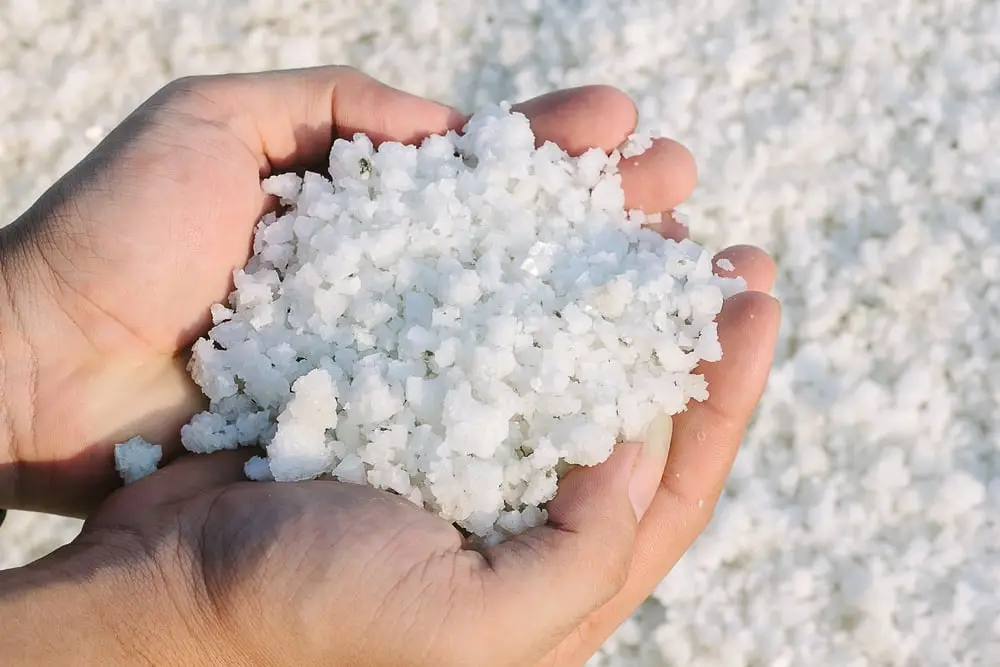Summer Promotions
$1500
value for Pentair Color LV Lighting System
Tucson: 520-797-6675
Sierra Vista: 520-508-6051
To qualify for the promotion, sign a contract by 7/31/2025 and start construction by 9/30/2025.

Saltwater pools are becoming increasingly popular for their gentler water, reduced chemical use, and easier maintenance compared to traditional chlorine pools. But did you know that not all pool salt is created equal? Choosing the right type of salt is essential for the health of your pool and the efficiency of your salt chlorine generator.
While table salt and pool salt are both sodium chloride (NaCl), pool salt undergoes specific processing to ensure it’s free from impurities that can damage your pool equipment or affect water clarity.
Here’s a breakdown of the different types of pool salt:
Solar salt is produced by evaporating seawater in large ponds. While this method is natural, it can leave behind organic impurities like dead bacteria and microorganisms. These impurities can clog your pool filter and make it work harder.
Important Note: Pool experts generally don’t recommend solar salt for swimming pools.
This type of salt is also derived from seawater, but it undergoes a more controlled evaporation process using artificial heat. While it typically has fewer organic contaminants than solar salt, it can still contain minerals that may cause staining or damage to your pool chlorinator, especially in concrete pools.
Mined salt is the preferred choice for saltwater pools. Extracted directly from underground salt deposits, it boasts a higher purity (95-99% sodium chloride), minimizing the risk of staining or equipment problems. While mined salt might be slightly more expensive, its benefits in the long run make it a worthwhile investment.
Important Note: When adding mined salt to your pool, distribute it evenly in the deep end while the pump is running, and avoid letting it pile up on the pool surface.
At Pools by Design, we’re experts in creating stunning and functional saltwater pools. We’ll guide you through the entire process, from choosing the right salt to ensuring proper maintenance for years of enjoyment.
Frequently Asked Questions About Pool Salt
Q: How often do I need to add salt to my saltwater pool?
A: Salt levels naturally decrease over time due to splash-out and backwashing. You’ll typically need to add salt a few times a year, but it’s important to regularly test your salt levels and follow your salt chlorine generator manufacturer’s recommendations.
Q: Can I switch from chlorine to a saltwater system in my existing pool?
A: Yes, in most cases, you can convert your existing pool to a saltwater system. We can help you determine if your pool is suitable for conversion and guide you through the process.
Q: What are the benefits of a saltwater pool?
A: Saltwater pools offer several advantages: * Softer, gentler water that’s easier on skin and eyes. * Reduced need for harsh chemicals. * Less maintenance compared to traditional chlorine pools. * Cost savings over time.
Ready to experience the luxury of a saltwater pool? Contact Pools by Design today for a free consultation. Let’s create a backyard oasis you’ll cherish for years to come. Call 520.797.6675
B5 RESIDENTIAL SWIMMING POOL ROC# 259661 | A9 COMMERCIAL SWIMMING POOL ROC# 288310 | © 2021 POOLS BY DESIGN. ALL RIGHTS RESERVED. | PROFESSIONALLY DESIGNED BY AMPED MARKETING